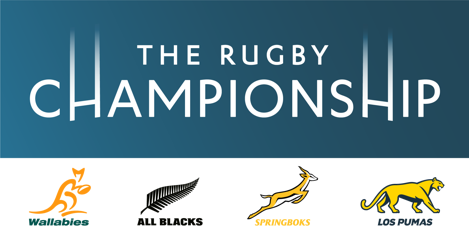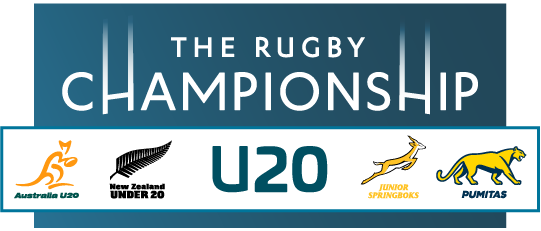Sanzarrugby.com takes a look at four different tackle situations, and their subsequent penalties or sanctions.
For the last three seasons the International Rugby Board (IRB) has made it clear that there is to be a crackdown on illegal tackles (including high, dangerous or tip tackles), while SANZAR reiterated this season that tough penalties would occur if players were found guilty – especially terms of tipping.
In 2009 the IRB released the following statement.
“In 2007, the IRB Council approved a Laws Designated Members Ruling which essentially made it clear that tackles involving a player being lifted off the ground and tipped horizontally and were then either forced or dropped to the ground are illegal and constitute dangerous play.”
“At a subsequent IRB High Performance Referee Seminar at Lensbury referees were advised that for these types of tackles they were to start at red card as a sanction and work backwards.”
“Unfortunately these types of tackles are still being made and the purpose of this memorandum is to emphasize that they must be dealt with severely by referees and all those involved in the off-field disciplinary process.”
“To summarise, the possible scenarios when a tackler horizontally lifts a player off the Ground. The player is lifted and then forced or “speared” into the ground. A red card should be issued for this type of tackle. The lifted player is dropped to the ground from a height with no regard to the player’s safety. A red card should be issued for this type of tackle.”
In 2010 this was taken a step further, with the IRB Council formally amending the law.
“The IRB Council has reinforced its zero-tolerance stance towards all dangerous tackles by approving an amendment to the Law relating to the spear tackle.”
“An amendment to Law 10.4(j) has been approved to recognise the defensive actions of the tackled player when the arms are outstretched to break a fall and to further ensure the consistency of application of the appropriate sanction for offending players.”
“The amended Law 10.4(j) will now read: Lifting a player from the ground and dropping or driving that player into the ground whilst that player’s feet are still off the ground such that the player’s head and/or upper body come into contact with the ground is dangerous play.”
“The amended Law will operate globally from December 1, 2010.”
This was followed up with a final memorandum, released in February 2011 by the IRB, and re-emphasised by SANZAR coming into the 2012 Super Rugby season, emphasising that high, illegal or tip tackles they must be dealt with severely by Referees and all those involved in the off-field disciplinary process (as quoted in the official media release).
The release went on further to state that any tackle that can have serious repercussions for player safety “bears all the hallmarks of an action which should result in a red card or a yellow card being seriously considered.”
“Referees and Citing Commissioners should not make their decisions based on what they consider was the intention of the offending player. Their decision should be based on an objective assessment (as per Law 10.4(e)) of the overall circumstances of the tackle.”
Eliminating and/or punishing these tackles are paramount to ensure that player safety is the highest priority.
More recently SANZAR Game Manager Lyndon Bray, who oversaw a ‘pre-season’ training camp at Coogee Beach in Sydney with referees ahead of the 2012 Super Rugby season, stated that the above measures and principles were to be put into place throughout the campaign.
Going further is the judicial process itself, with guilty pleas, prior disciplinary records and individual circumstances all ensuring that each situation is impossible to compare – and that all players and tackles are treated on their specific merits.
We compare four situations that have occurred throughout the season so far, with it important to note that the last two accepted the sanction imposed and that the players in question had clean previous records.
Case studies for four tackle situations
(Please note that some of the below are based on notes from either Duty Judicial Officers, Judicial Officers or Citing Commissioners.)
1. Michael Hooper
Cited and Went to Full Hearing
Off Field Yellow Card Issued
The Judicial Officer (JO) was assisted by video coverage supplemented by evidence and submissions for the player and evidence from referee Mr Mark Lawrence.
The JO concluded that Hooper made an orthodox tackle around the knees but was driven back by the ball carrier who drove forward with his right leg raised high.
Hooper did not change his hold on that leg and his other arm was in contact but ineffectual. From that position the ball carrier was left without balance on his left foot. This was not so much a lifting but holding the right leg in a high position which with the momentum saw Vito fall sharply to his left, landing on his elbow then shoulder when placing the ball. He was not injured. The referee was emphatic that the penalty was sufficient and reflected a lifting and losing control rather than a tipping or driving. The JO considered the crux of the decision lay in whether Hooper lifted or tipped the ball carrier. The evidence did not establish a lift in the ordinary way but that Hooper did contribute to the tipping which partly rose from the destabilised position of the ball carrier in driving the tackler back with his right leg high.
The decision of the referee is to stand in his assessment of the incident as to the facts and gravity unless considered to be wrong. His position was clearly expressed. He found a breach but for slightly different reasons than the JO.
The contribution to the tipping puts the player in breach but it was contributory only and otherwise arose from an orthodox tackle. He has an excellent disciplinary and off field record. Rule 9.2 allows a yellow off field card where the breach is low end and there are compelling mitigating features as here and there are no aggravating features. While the spate of these incidents may be seen as aggravating this is tempered by the unusual facts here.
2. Luke Morahan
Off Field Yellow Card issued
Reds fullback Luke Morahan proceeds to tackle Chiefs centre Sonny Bill Williams. During the tackle Williams turns himself in the tackle in what appears to be an attempt to make the ball available to supporting players. Morahan continues to tackle Williams and in doing so lifts Williams, who is then tipped in the tackle. Williams whilst coming down then attempts to break his fall with his arm, he then lands on his upper body whilst his feet were still in the air. Williams then immediately plays on so as to form a ruck and does not appear injured as a result of the incident.
Due to the potential for this tip tackle to cause serious injury, the tackle was considered for a Red Card.
The reasons for not issuing a Red Card in for this tackle are that Morahan did not continue with the tackle from a perspective of making the incident more dangerous, in that he did not drop or drive Williams into the ground. The action of Williams turning in the tackle changed the dynamic of the tackle and appears to have contributed to the tackle. More importantly Williams did not land on his spinal area and did not appear to be at risk of serious injury. Finally Williams was immediately able to play on and was not injured as a result of the tackle.
This stated whilst the tackle did not breach the Red Card threshold it was very close and as such an off field Yellow Card has been issued. The incident was discussed with the New Zealand and South African Citing Commissioners who agree with this sanction.
3. Cooper Vuna
Cited and Pleaded Guilty at DJO stage
Cooper Vuna was cited for a dangerous tackle in the Rebels v Highlanders match on 30 March 2012. The tackle involved the player lifting the Highlanders 14, tipping him beyond the horizontal and dropping him on to the ground, in one motion. The Highlanders player landed on his back. The tackle was clearly dangerous, as the player appears to drop the tackled player without any attempt to bring him down safely. In the circumstances I find that the tackle was in breach of Law 10.4(j). The player accepted that the tackle was executed poorly and was in breach. It was explained that the tackle was performed in a dynamic situation and that he attempted to pull out of the tackle and release the player (dropping him without realising the danger involved).
I reviewed the match footage and the citing commissioner’s report. I find that the tackle was executed deliberately in the sense that he intended to lift the player and tip him. The player was tipped beyond the horizontal and dropped to the ground (and objectively assessed was clearly dangerous). I accept, however, that there was no intention to injure the player or to drive him into the ground. Rather, Vuna has executed the tackle with poor technique and was reckless as to the danger caused. I note that the Highlanders player suffered no injury and continued to play immediately (although the lack of resulting injury in these tackles may be fortuitous). Vuna immediately went to the Highlanders player to check on him and apologise.
In all the circumstances, I find that the tackle was low-end and warrants an entry point of three weeks. There is the need for deterrence, which again is present in respect to these tackles (refer IRB memorandum of June 2009). A further week of suspension is warranted for reasons of deterrence.
Matters in mitigation include the player’s immediate acceptance of his wrong, his remorse for the same and his plea of guilty. Cooper Vuna has no previous relevant disciplinary matters. He has one yellow card in Super Rugby, but no cards or citing for foul play. He said he has played professional rugby and rugby league since 2004, with the last two in professional rugby. I am advised that is the first matter of foul play in either code to come to discipline. He has a positive record over a significant professional career - a matter which should weigh clearly in his favour.
To recognise and acknowledge the immediate guilty plea and remorse, and other mitigating factors, I am prepared to reduce the penalty by two weeks, bringing it down from four weeks to two weeks suspension.
4. Rob Horne
Yellow Carded and Cited
Pleaded Guilty at DJO Stage.
Rob Horne was cited for a dangerous tackle on Kurtley Beale in the Rebels v Warratahs match on 21 April 2012. He was given a yellow card on the field and later cited by the citing commissioner. The tackle involved the player lifting the opposing player, tipping him beyond the horizontal and dropping him on to the ground (in one motion).
The citing alleged that Horne dropped Beale and whilst Beale was falling to the ground Horne then pushed him down (Horne and the Waratahs denied this aspect of the citing). On my review of the footage, I find that the tackle was executed deliberately in the sense that he intended to lift the player and tip him. The player was tipped beyond the horizontal and dropped to the ground (and objectively assessed was clearly dangerous). I accept, however, that there was no intention to injure the player or to drive him into the ground. I was also not able to be satisfied of the aspect of the citing that was denied (the subsequent pushing down of Beale).
In my view Horne has executed the tackle with poor technique and was reckless as to the danger caused. He accepted this. I note that the opposing player appeared to suffer no injury and continued to play immediately (although the lack of resulting injury in these tackles may be fortuitous). I was told that Horne immediately went to check on Beale after the tackle, and later spoke with him to apologise for the tackle. He confirmed that Beale was not injured.
The tackle was clearly dangerous, as the player lifts, tips and then drops Beale without any attempt to bring him down safely. In the circumstances I find that the tackle was in breach of Law 10.4(j) but was not satisfied that there was a pushing down after the tipping. The tackle appears to occur in one motion, with Horne releasing Beale once he is tipped, but the momentum appears to continue and results in Beale twisting and falling backwards, onto his back.
In all the circumstances, I find that the tackle was low-end and warrants an entry point of three weeks. There is the need for deterrence, which again is present in respect to these tackles (refer IRB memorandum of June 2009). A further week of suspension is warranted for reasons of deterrence.
Matters in mitigation include the player’s immediate acceptance of his wrong, his remorse for the same (expressed again to me) and his plea of guilty. Rob Horne has no previous relevant disciplinary matters. He has no cards or citing for foul play and is in his fifth season of professional rugby. He is a member of the Waratahs leadership group and at the age of 22 has earned 9 caps for the Wallabies and 37 for the Waratahs. He has a very good record over a significant professional career - a matter which should weigh clearly in his favour.
To recognise and acknowledge the immediate guilty plea and remorse, and other mitigating factors, I am prepared to reduce the penalty by two weeks, bringing it down from four weeks to two weeks suspension.




